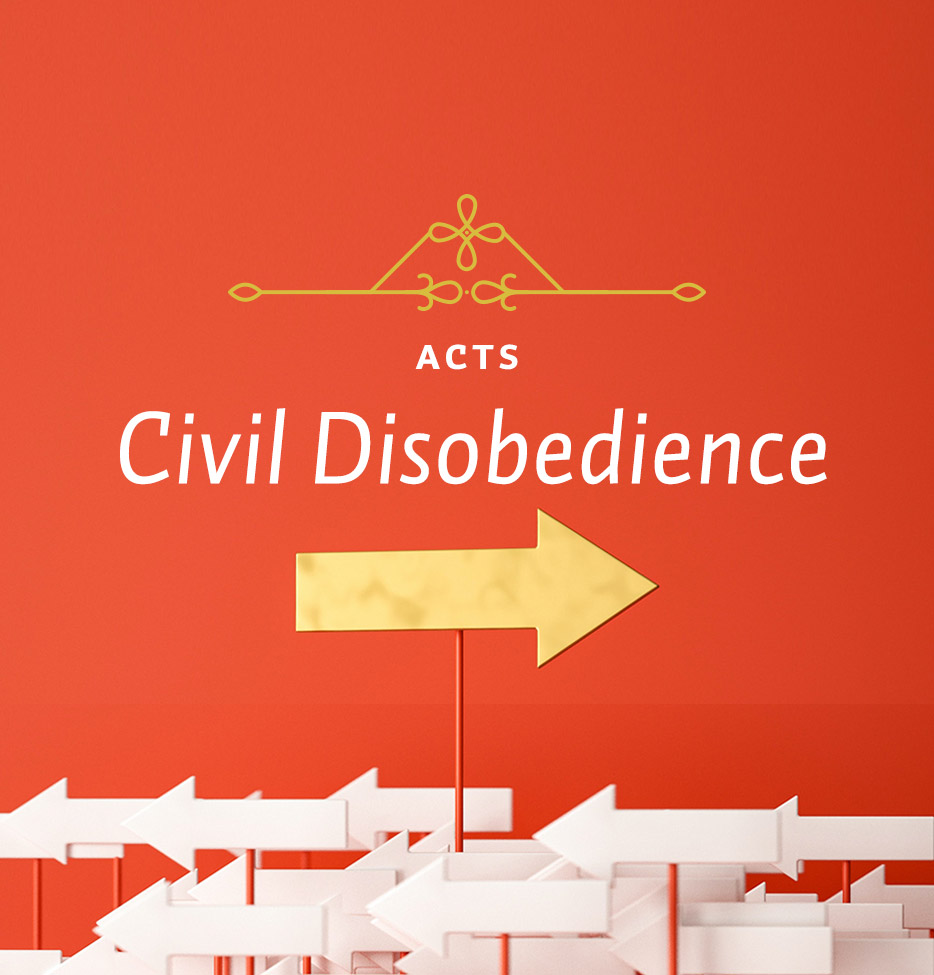We concluded yesterday’s study with the important point that the state is responsible to God for what it does. Incidentally, this is also what gives limits to the civil authorities. We see one of these limits in the story. When the state tells us that we cannot preach the Gospel, that is an overextension of its authority. It is an illegitimate use of its legitimate authority and we must resist it.
In our day we have had an unfortunate interpretation of the doctrine of the separation of church and state. Originally that meant that the state was not to establish or hinder religion. But religion and the free practice of it anywhere were clearly protected by the Constitution. Today this has been interpreted in a purely secular way to say that there should be no religion in anything that involves the state—and the state seems to be everywhere. Thus the practice of religion has been excluded from the public schools, and it is increasingly under attack in other areas of our national life. That is unfortunate.
However, when we begin to wrestle with the problem and ask, “How are we going to deal with it?” we need great wisdom. I believe Christians should argue for the right to pray in the public schools themselves, if they wish, and to present the Christian point of view on things, along with other points of view. Students should have the right to meet for Bible study, just as another group might meet for something else. Cases involving those matters have been before the Supreme Court.
But when the state tells us, “You can be religious, but you must do it privately,” it is doing the very thing that was being done in Russia before the changes of 1989. The Soviet Union tolerated religion. But it had to be practiced privately. In the Soviet Union parents could not teach religion even to their own children. We are on the same path when our government says that we cannot have the practice of religion in the public schools.
When the state forbade the apostles from doing something God had told them to do, Peter and John disobeyed. They did not deny the state’s authority. The state had the right to make whatever judgment it thought best. In fact, Peter and John acknowledged that. They said, “Judge for yourselves whether it is right in God’s sight to obey you rather than God.” That is, “If you think in your wisdom that we should obey you rather than obey what God has told us, then you must exercise your punitive authority. But as far as we are concerned, God has told us to do something and we are going to do it, regardless of what you say.”
The second of the four possible options is Caesar alone with the authority of God denied. This option pushes God, rather than the state, out of the picture. It is the prevailing option of our day. It is the option of secularism. Today’s secularism does not prohibit us from practicing religion privately. But we are not supposed to bring it into the open. We are to keep it contained because, so today’s secularism says, in this world, the real world, Caesar is the only thing that matters.
This is foolish. Why? Because we need God to appeal to when the state becomes evil or tyrannical. We need a check on Caesar. We recognize this secularly. In America we have a government system of “checks and balances,” that is, a system of limitations and controls among the various branches of government. For example, the President can propose programs, but the programs do not get underway unless Congress funds them. Congress can pass laws, but the laws do not go anywhere if the Supreme Court declares them unconstitutional. The President can appoint Supreme Court justices, but the Congress can impeach the President. Each branch of the government has a check or checks on other branches. We are greatly blessed having a document like the United States Constitution, because our founding fathers, recognizing the corruption of the human heart, said, “It is not wise to allow any one branch of government to have all the power.”
It is the same in regard to God. If you push God out of the picture, you have trouble. Because even if you have three branches of government that are supposed to have checks on one another, what happens if all three get together to establish a state that has no room for God or biblical morality? (This is very close to what is happening in America today.) When you have God in the picture, you can always call the state to account. It is the job of the church to do that. But if you push God out of the picture, you are at the mercy of your governors.






